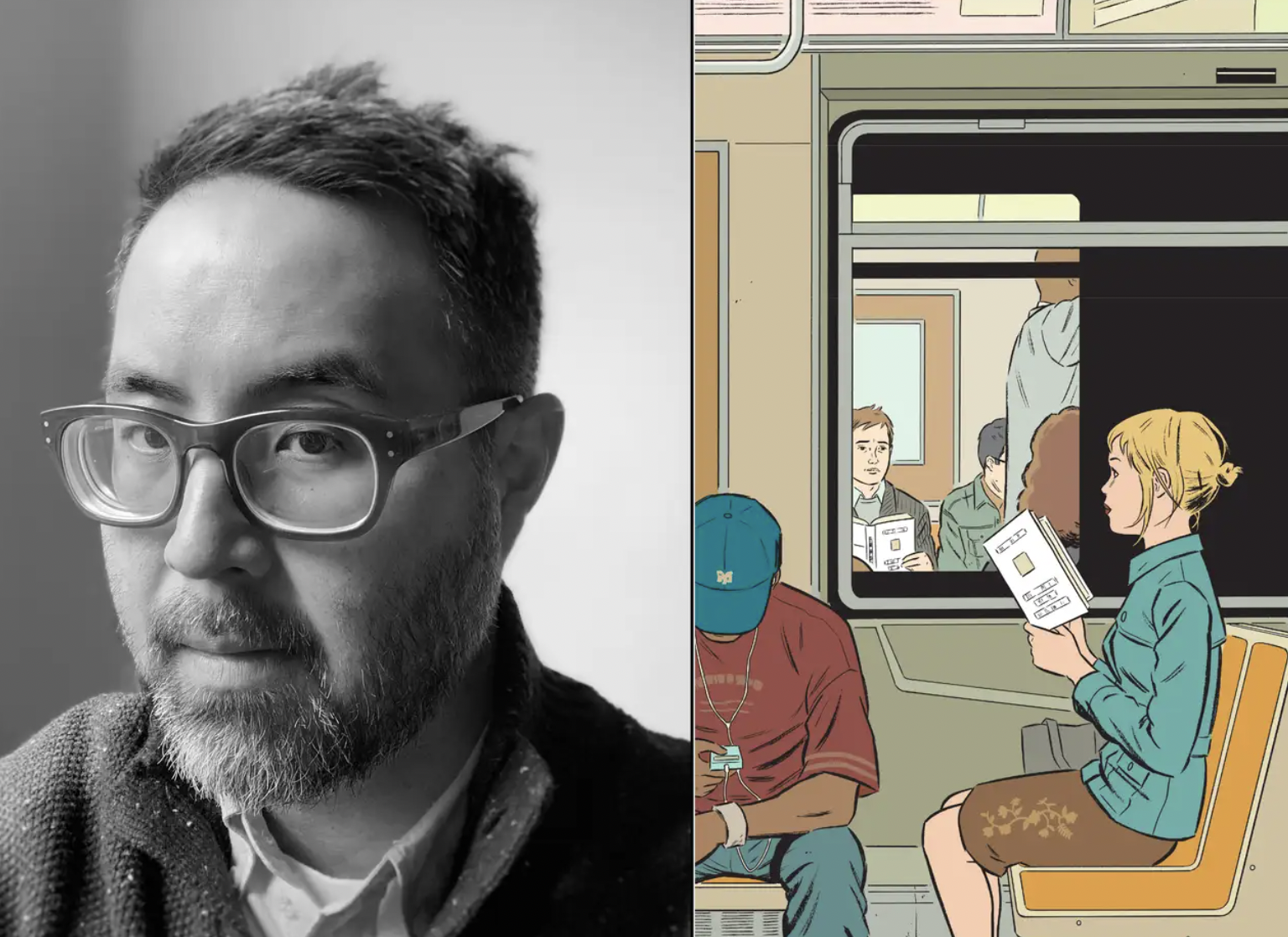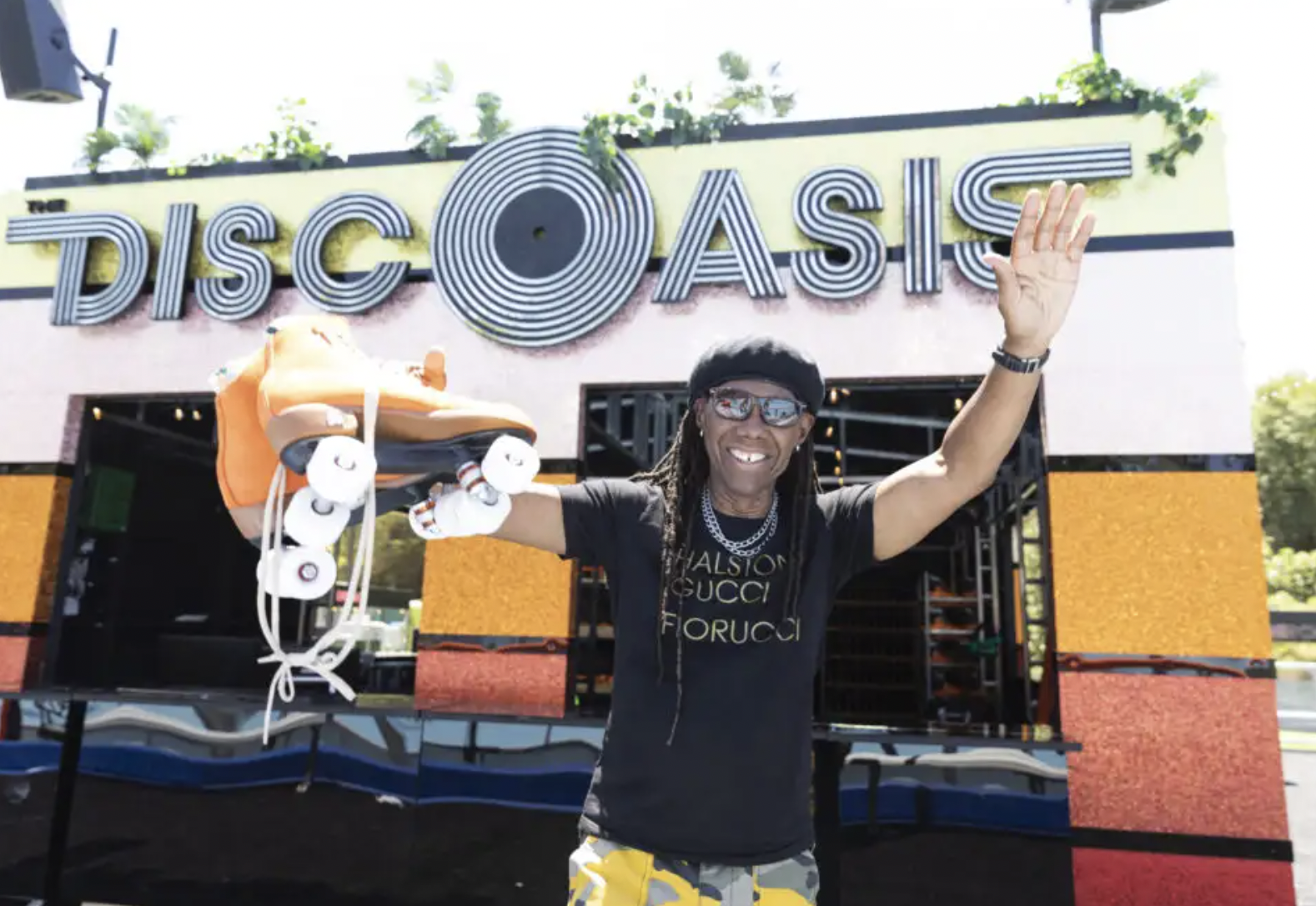A four-part interview series with Jack Douglas, a pivotal rock producer in the 1970s who worked with everyone from Patti Smith to the New York Dolls, from Aerosmith to Cheap Trick, from Miles Davis to The Who. That included a decade-long working relationship and friendship with John Lennon; Douglas was in the studio with Lennon the night before he was killed.
Sketchy Interviews was a recurring series on Gothamist I started in which I did "visual interviews" with some of the best illustrators, cartoonists and graphic artists working in the city.
"We are, for better or for worse, for whatever dysfunction there may be in there, we are a family. We've been through things together that nobody's been through. And I just think that, that's not something to be taken lightly."
Andy Warhol is credited with producing over 10,000 pieces of art in his lifetime, a truly impressive amount of work. But Warhol's got nothing on Steve Keene, who has created more than 300,000 paintings, and is widely considered one of the most prolific artists in all of human history.
"I love the fact that this turned out to be a tragedy. When we started this process, we didn't know that the biggest, most heartbreaking antagonist to Jimmy McGill would be his own brother, Chuck."
"I think that, especially with the Avatar people, that's just so much of the fun of the show...finding just how people form communities in the smallest, most intimate kind of niche ways."
"I think sometimes I've looked back at some of my own work and seen it as a little overstuffed, with either lyrics that are trying too hard, or just things that I see like, oh, he's trying to be funny or smart or something. And I don't believe this guy right now. He's bullshitting me."
Artist Jane Dickson lived, worked and raised two children in an apartment on 43rd Street and 8th Avenue during the late '70s and early '80s, documenting the rapidly-changing landscape of the area with her drawings, paintings, and photography.
"That's what's interesting to me about the human experience, is that we all think we're trying to do the right thing, and we end doing the wrong thing."
The interview doesn't always make sense, but then again, neither does throwing footballs around in tuxedos, or a drug dealer confronting a high schooler who looks like he's 40-years-old on a green screen roof, or yelling at someone to leave their stupid comments in their pocket. Sometimes not making sense is its own kind of sense.
"What's the story about? It's the story of women's enslavement. That's part of this story. It's a major part of it. But repression and control and fear are all in it together and until the repressed and the repressor get on the same page, nothing is going to shift."
"With a lot of people, they don't know they're racist. They just think somehow that there are a hundred thousand white men who could do the job of president better than Obama could. It's just this sickness we have, like the Civil War didn't end. It's not just the South, it's people everywhere."
"[There are] so many languages and smells and experiences you can have on just a one block radius, that you can't get anywhere else if you went to another country."
His instantly recognizable New Yorker covers, which feature keen observations and romance-tinged glimpses of life in the city, are among his most famous works.
"Somebody once said to me, 'The worst part of working at The Simpsons must be that you can't go home and watch The Simpsons.'"
"There's something about the way that Bob puts music together that...you don't really understand except that things are happening when you don't expect them to happen, and he's taking you to places emotionally that you wouldn't normally expect."
"[Trump] is a bit like Brent. The big difference between him and David Brent is that Brent is a bit of a loser. That's why Brent has our sympathy more, because he's struggling. He's against the odds. Whereas, Trump was handed the winning ticket from birth."
"There was a real intimacy and a real beauty in the way people were interacting with each other on the beaches that is not quite the same at a city park or on the subway. At the beach, it was almost like people forgot other people were around."
One of the standout stories of season two of Master of None is "New York I Love You," a joyous standalone installment that takes the vignette format of the show and runs it to its logical conclusion.
"I think it's also been a show about people on a wheel who keep jumping into new projects, new relationships, new loves, and kind of hoping that this is the one that's going to finally make them complete. This is the one that's going to finally shape them, only to realize that's kind of a never-ending cycle."
"I think of this idea that exists out in the world: the only guy who can stop a bad guy with a gun is a good guy with a gun. I don't know if that comes from real life, I think that comes from stories, from the stories we're telling and putting out there, and I wonder if we are taking enough responsibility for that."
"I believe that if ethics were a mandatory class for all human beings on Earth, and everybody had to learn about the basic philosophies of good and bad, right and wrong—in a non-religious way, in a non-tribal way, where it's just purely like these are what thinkers think about right and wrong—I think that most of the problems in the world would go away."
(You can read part two of the interview here)
"I think that's one of the great paradoxes of the show, right? Because, we're laughing at so many things that are wrong, but at the same time, maybe we're just all drowning in this politically correct world that we have to live in now, or that we try and live in. And Larry is constantly popping those balloons."
"So I think there's an element of that: I've just got to do as much as I can. Time's running out. And time goes so quickly. I've got to keep writing and keep trying to produce work."
"You say to someone, 'I’m gonna read a poem to you,' they’re either gonna run away or cover their ears, or just think this is a curiosity, but if they hear one on the radio when they’re not expecting it or see one on a billboard or on commuter trains, then it gets into them before they’ve deployed their anti-poetry shields."
"Maybe I'm just too overly romantic about it, but there's something special about skate culture."
"Six MacGuffins is never anyone's first choice, Ben. [Laughs] It's a lot of MacGuffins."
"Jimmy did a lot of things that were wrong, he had a lot of collateral damage in his world, but he was very naïve about it, or carried away, or just kind of oblivious to those kind of things. And in this last season he did some stuff that was very pointedly self-interested and destructive. And he just carried on doing it even though he was fully aware of the bad parts of it."
[Also check out interviews with Saul castmates Rhea Seehorn and Jonathan Banks]
"It’s what I wanted since I was a kid, finally somebody writing about my music. That's what I used to collect: magazines of all my favorite artists. So it's kinda the dream."
"I do pop onto Twitter now and again and I love the fact that the audience are still trying to work it out. They want to know but they don't want to know. The amount of people that I've got on the street who dive out in front of me, who beg me for a little spoiler—it's all over the place, and it's great fun. I'm loving it."
[Also check out an interview with Ser Bronn about loyalty, Lannisters & dragons]





























